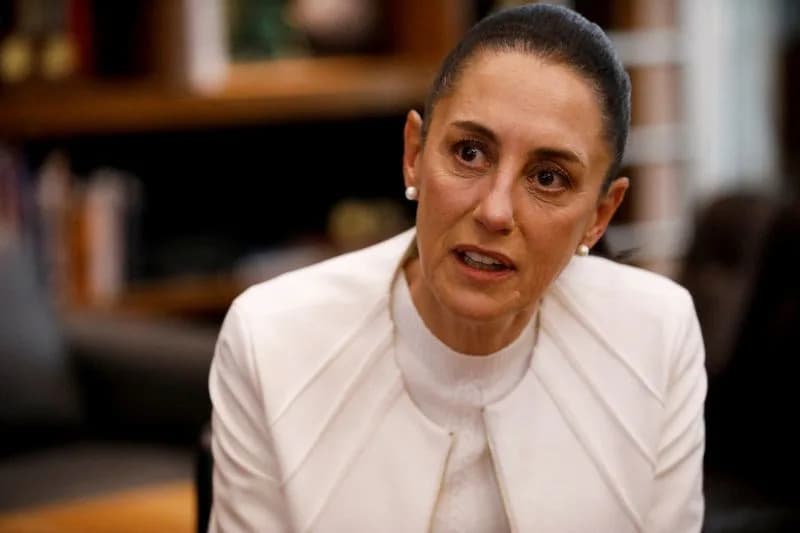Italy is facing a serious femicide crisis: the killing of model Pamela Genini was recorded as the 72nd femicide in 2025 by Non Una Di Meno. Critics say Prime Minister Giorgia Meloni’s government has emphasized punitive measures and traditional-family policies over prevention, and recently defended keeping a ban on sex education in schools. Structural problems — precarious work, low wages, limited childcare and a wide gender pay gap — are cited as drivers of women’s insecurity and the falling birth rate. Public opinion is divided between those who welcome family-first policies and those who demand stronger prevention and gender-equality reforms.
Italy’s Femicide Crisis: Critics Say PM Giorgia Meloni Must Do More on Prevention and Gender Equality

Italy’s femicide crisis and the debate over prevention
Pamela Genini, a 29-year-old model, influencer and entrepreneur from Milan, appeared to have what many would call an enviable life. In mid-October, prosecutors say her 52-year-old ex-partner, Gianluca Soncin, entered her apartment and fatally stabbed her; police found Genini dead on her balcony and Soncin at the scene. Soncin is being held in solitary confinement awaiting formal charges of voluntary homicide, cruelty, stalking and premeditation, authorities say.
Genini was recorded by the observatory group Non Una Di Meno (Not One Less) as the 72nd femicide in Italy in 2025; the group says four more women have been killed since then and six additional deaths are under investigation as possible femicides. Non Una Di Meno recorded 116 femicides in 2024, a slight decline from the previous two years.
What critics say about the government response
Giorgia Meloni, Italy’s first female prime minister, has enacted some high-profile legal measures: her government strengthened anti-stalking laws and made domestic violence an aggravating factor in sentencing, increasing potential penalties. But critics argue those steps focus on punishment after violence occurs rather than on prevention.
Most recently, the Education Ministry backed legislation that preserves a ban on sex education in kindergartens, primary and middle schools — a curriculum many experts view as foundational for teaching consent and preventing gender-based violence. Meloni has defended the stance as a safeguard against what she calls "woke gender theory," and renamed the ministry to the Ministry for the Family, Birth Rate and Equal Opportunities, emphasizing traditional-family policies and incentives for childbirth.
Opposition figures and activists say the government’s approach risks leaving prevention efforts under-resourced. "While Europe moves forward, Italy is returning to the Middle Ages," opposition parliamentarian Alessandro Zan said. Meloni’s office has declined to comment on the recent debate; she has repeatedly denied opposing women’s interests and has called criticism "fake news."
Structural drivers: economy, employment and fertility
Beyond immediate safety concerns, Italy faces long-term structural challenges that affect women’s lives. ISTAT data show Italy’s total fertility rate fell to 1.18 in 2024 and provisional figures for the first seven months of 2025 indicate a further drop to 1.13. Official statistics also show a 6.3% decline in births for the first seven months of 2025 compared with the same period in 2024.
Researchers point to employment insecurity, widespread temporary contracts, low wages and weak childcare provision as major factors discouraging family formation. The World Economic Forum’s 2025 Global Gender Gap Report ranks Italy 85th of 148 countries overall and 117th on women’s economic participation. Women’s labour-force participation has fallen to about 41.5% while men’s remains near 60%, and in some sectors women earn up to 40% less than men.
Voices from the public
Ariana Ricci, 32, an HR manager who voted for Meloni’s Brothers of Italy in 2022, says she hoped a female leader would address wage gaps and childcare. Instead, Ricci—who works on temporary contracts—says she fears starting a family would mean no paid maternity leave, no job security on return and unaffordable childcare.
“If I were to start a family on a temporary contract, I wouldn’t get my maternity leave paid, I wouldn’t get my job back, and I couldn’t afford childcare even if I did have a job to go back to,” Ricci said. “What incentive is that to have a family?”
By contrast, Beatrice Costa, a university-educated mother in central Rome, said she feels affirmed by Meloni’s family-first message and appreciates social acceptance for choosing motherhood. Costa credits stable family support and her husband’s steady job for making child-rearing feasible.
Where policy debate goes from here
The debate in Italy now centers on whether to press for more prevention-focused measures—comprehensive sex education, stronger childcare and employment protections for women—or continue emphasizing traditional-family incentives and tougher criminal penalties for offenders. Critics argue that prevention and structural reforms would better protect women and support families in the long term, while supporters say cultural and fiscal incentives matter to restore birth rates.
This is a national conversation with international resonance: the balance between prevention, social policy and cultural values will shape both women’s safety and Italy’s demographic future.
Sources: Non Una Di Meno, ISTAT, World Economic Forum, Bocconi School of Management.
Help us improve.




























